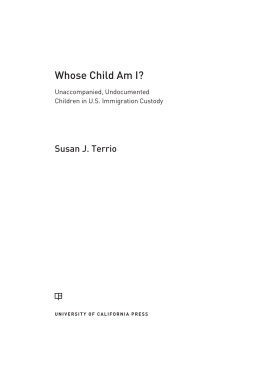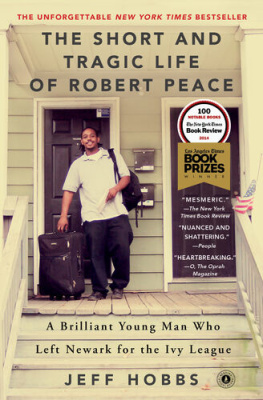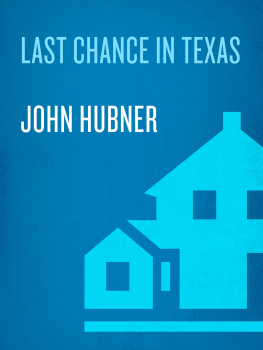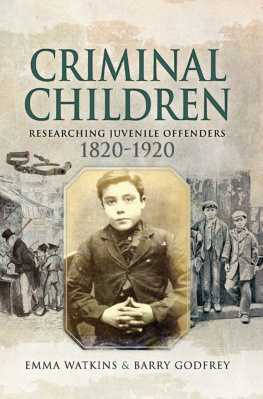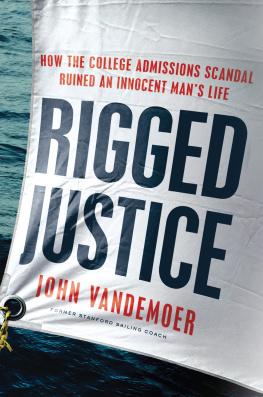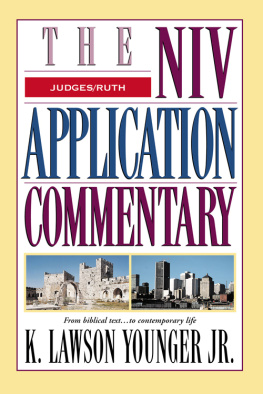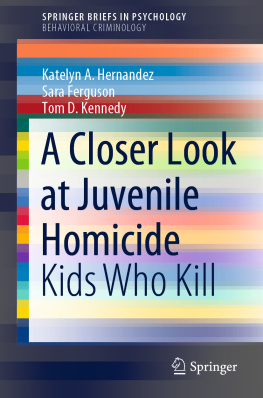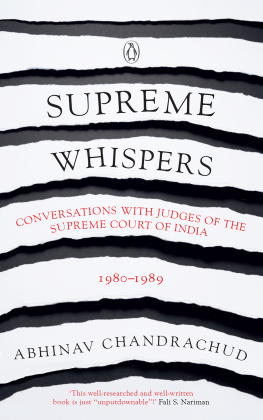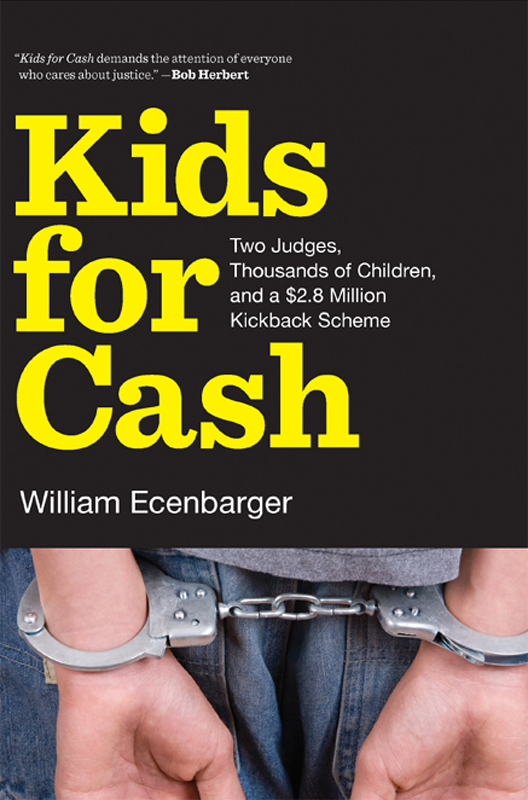Contents
Page List
Guide
KIDS FOR CASH
KIDS FOR CASH
Two Judges, Thousands of Children, and a $2.8 Million Kickback scheme
WILLIAM ECENBARGER

The New Press gratefully acknowledges the
John D. and Catherine T. MacArthur Foundation
for supporting publication of this book.
2012 by William Ecenbarger
All rights reserved.
No part of this book may be reproduced,
in any form, without written permission from the publisher.
Requests for permission to reproduce selections from this book should be mailed to:
Permissions Department, The New Press, 120 Wall Street, 31st floor, New York, NY 10005.
Published in the United States by The New Press, New York, 2012
Distributed by Two Rivers Distribution
LIBRARY OF CONGRESS CATALOGING-IN-PUBLICATION DATA
Ecenbarger, William.
Kids for cash : two judges, thousands of children, and a $2.8 million kickback scheme /
William Ecenbarger.
p. cm.
Includes index.
ISBN 978-1-59558-797-8 (hc.)
1. Juvenile detentionPennsylvaniaCase studies. 2. Juvenile courts
PennsylvaniaCase studies. 3. Juvenile justice, Administration of
Corrupt practicesPennsylvania. 4. BriberyPennsylvaniaCase
studies. 5. CorruptionPennsylvaniaCase studies. I. Title.
HV9105.P22E34 2012
365'.4209748dc23
2012021136
The New Press publishes books that promote and enrich public discussion and understanding of the issues vital to our democracy and to a more equitable world. These books are made possible by the enthusiasm of our readers; the support of a committed group of donors, large and small; the collaboration of our many partners in the independent media and the not-for-profit sector; booksellers, who often hand-sell New Press books; librarians; and above all by our authors.
www.thenewpress.com
Composition by dix!
This book was set in Fournier MT
2 4 6 8 10 9 7 5 3 1
For Angie and Bill
Listen! If everyone must suffer in order to buy eternal harmony with their suffering, pray tell me what have children got to do with it? Its quite incomprehensible why they should have to suffer, and why they should pay for the harmony with their suffering.
Fyodor Dostoyevsky, The Brothers Karamazov
CONTENTS
Most of all, I am grateful to the kids and parents who agreed to talk to me about their experiences in the Luzerne County Juvenile Court. Among this group, I am especially indebted to Laurene Transue, who showed Mark Ciavarella and his accomplices in injustice that one of the most dangerous places in the world is between a mother and her child.
This book could not not have been written without Juvenile Law Center and its two leaders, Bob Schwartz and Marsha Levick, who set out some four decades ago to change the world and did. They, along with their colleagues Marie Yeager and Laval Miller-Wilson, educated me in how a juvenile justice system ought to work. I thank them for their intelligent suggestions and patience.
As a journalist for a half century, I have covered many blue ribbon panels that were set up to study serious problems and then proceeded to ignore them. The Interbranch Commission on Juvenile Justice is a sterling exception. Chairman John Cleland is a judge who, unlike Conahan and Ciavarella, takes his oath of office seriously. He and several of his colleagues on the commission were steady, trusted presences in the process of writing this book.
Special thanks also to Thomas Baldino, Thomas Crofcheck, Richard Gold, William Kashatus, Bart Lubow, Chester Muroski, Robert Wolensky, and Clay Yeager.
Susan Stranahan, my onetime colleague at the Philadelphia Inquirer, read early drafts and made her usual perceptive criticisms.
I am also grateful to those individuals who agreed to talk to me on condition that I not use their names. You know who you are, and so do I.
My thanks to two esteemed institutions for their generous support toward the writing of and production of this book: the Annie E. Casey Foundation and the MacArthur Foundation.
Anita Bartholomew, my agent, encouraged this project right from the beginning and connected me with The New Press and executive director Diane Wachtell, whose immediate enthusiasm for the project persuaded me to go with The New Press. Over the next year, she persevered through great personal tragedy to shape my manuscript into its final form. Marc Favreau, editorial director at The New Press, also made important suggestions that were heeded.
Finally, writing a book is a solitary, consuming experience and therefore hard on the people the writer lives with. No one knows this better than my wife Susan, who not only put up with me but served as my first-read editor, making constructive suggestions, aligning verb tenses, eliminating misspellings, blocking unwise metaphors, and knocking down pretentiousness.
I was on a magazine assignment in the Peruvian Amazon in January 2009 when the kids-for-cash story broke, and I didnt catch up with it until early March when I read Ian Urbinas page one article in the New York Times. As I read and re-read the article, it called to mind Mark Twains dictum: The difference between truth and fiction is that fiction must be believable.
Over the spring and summer of 2009, I was distracted by other matters, and the story was only at the rim of my awareness, until one night in October 2009 when I got a call from Vernon Loeb, the deputy managing editor of the Philadelphia Inquirer. A staffer in the Harrisburg bureau had become ill, and he needed coverage of an important hearing the next morning. Could I fill in? I had spent most of my career covering state government at the Inquirer and had recently started writing freelance pieces for it. But these were feature articles, and this was hard news: the first hearing by a special committee created to look into the judicial debacle in Luzerne County. Sure, I told Loeb. The story would occupy me for the next two and a half years. I interviewed more than two hundred people, including forty-three of the judges child victims and their parents, juvenile justice experts, prosecutors, defense lawyers, state officials, federal agents, victims advocates, and local attorneys, politicians, teachers, and judges (though not the two miscreants themselves). I covered hearings, trials, and sentencings, and I read thousands of pages of court documents.
Because it is the clear intent of the juvenile justice system that children be treated differently from adults, a euphemistic terminology has grown up that avoids some of the harsher words of the adult courts. In Pennsylvania, this gentler, softer language includes words like delinquent instead of criminal, disposition rather than sentencing, and placement, not imprisonment. I have tried to be sensitive to this issue, but I have not always followed these strictures. For example, placement is not always adequate to describe the process by which a child has his or her freedom taken away and is placed behind locked doors, and so I have from time to time in this book called it incarceration. My defense is that, in an effort such as this, it is always more important to be understood than it is to be polite.
I have chosen to use only the first names of nearly all the juveniles who came before Judge Ciavarella. Many of them have had their full names published in news accounts, but their court records were sealed and now have been expunged, and there is no need to perpetuate their unfortunate encounters with the Luzerne County Juvenile Court between 2003 and 2008. Exceptions to my rule are Hillary Transue and Jessica Van Reeth, whose status as lead plaintiffs in Juvenile Law Centers landmark suit make them special cases. In addition, they have consented to having their full names appear in this book.


